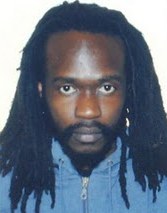85. The Gods are not to Blame by Ola Rotimi

Title: The Gods are not to Blame Author: Ola Rotimi Genre: Play/Tragedy Publishers: University Press PLC Pages: 72 Year of First Performance: 1968 Place of First Performance: Ife Festival of Arts, Nigeria Year of First Publication: 1971 (this edition, 1990) Country: Nigeria In this play, Sophocle's Oedipus Rex , is given a Nigerian treatment and having not read Sophocle's, I really enjoyed Ola Rotimi 's rendition. The gods are not to blame is a play that questions destiny: are we in control of our destiny or we are the product of our destiny? Can we escape it? At the end of the play, the question is still not answered as an individual can argue both for or against this theme. The play opens with someone narrating the events surrounding the birth of King Adetusa's first son. Queen Ojuola, King Adetusa's wife, has just delivered her first son and the soothsayer has been summoned to foretell the future of this newly born son. The soothsayer,...







